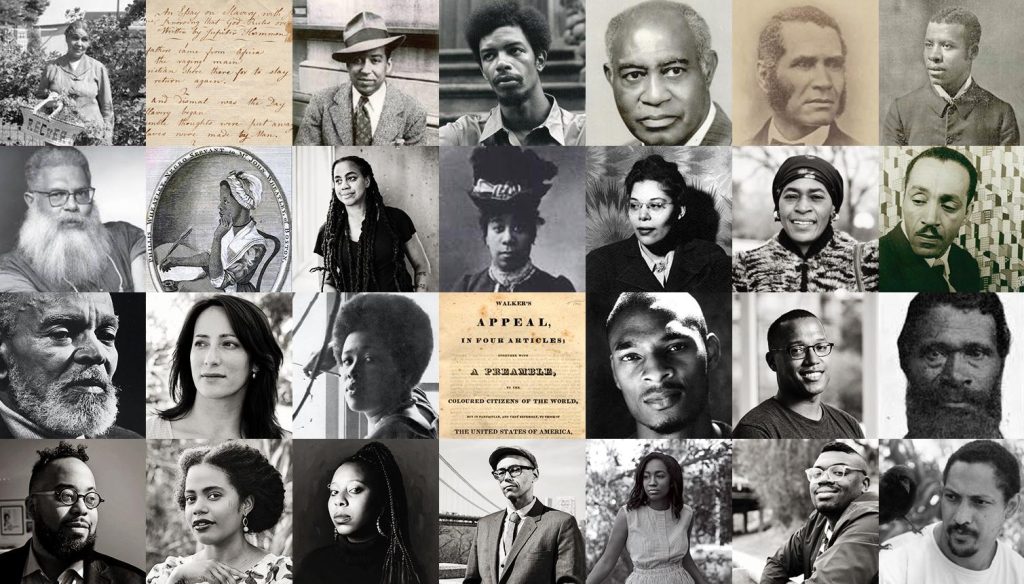
For centuries, African American writers have told stories that reflect the complexities of race, identity, and resilience in the United States. Yet, even as their works shape national culture and global conversations, many have faced systemic barriers in the publishing industry. From exclusion during slavery and segregation to modern struggles for visibility in mainstream publishing houses, the fight for representation has been long and ongoing. While recent progress has spotlighted more Black voices than ever before, the industry still grapples with questions of diversity, equity, and sustainability.
Historical Exclusion and Early Struggles
African American authors have always had to carve their own paths in an industry that historically ignored or silenced them. In the 18th and 19th centuries, enslaved and formerly enslaved writers such as Phillis Wheatley, Olaudah Equiano, and Frederick Douglass faced enormous obstacles in getting their works published. Often, they relied on abolitionist networks or sympathetic allies outside of mainstream presses to share their narratives.
In the early 20th century, the Harlem Renaissance provided new opportunities, but Black authors were still largely dependent on white-owned publishing houses. While writers like Langston Hughes and Zora Neale Hurston gained prominence, many others struggled to find publishers willing to invest in Black voices. The dominance of white gatekeepers often shaped which stories were told, and in what way, limiting the diversity of Black expression.
Self-Publishing and the Tradition of Independence
Because of systemic exclusion, African American authors built strong traditions of self-publishing and community-based distribution. Black-owned presses, literary journals, and bookstores became crucial spaces for nurturing voices that mainstream publishers ignored.
In the 1960s and 1970s, the Black Arts Movement amplified this independence. Writers such as Amiri Baraka and Sonia Sanchez published through small presses dedicated to Black cultural pride and political consciousness. These efforts ensured that African American stories circulated even when the mainstream industry failed to support them.
This legacy of independence continues today. Many African American writers turn to self-publishing platforms, not only out of necessity but also as a way to retain creative control. The rise of digital publishing, print-on-demand, and online distribution has revived this tradition, allowing new voices to bypass traditional gatekeepers.
Mainstream Breakthroughs and the Canonization of Black Authors
Despite obstacles, African American authors have profoundly shaped U.S. and global literature. Toni Morrison, Alice Walker, James Baldwin, Ralph Ellison, and Maya Angelou are celebrated not just as Black writers but as central figures in American letters. Their works won Pulitzer Prizes, National Book Awards, and Nobel Prizes, forcing the publishing industry to acknowledge their brilliance.
These breakthroughs marked turning points. Morrison, for example, worked as an editor at Random House before becoming one of the most influential novelists of the 20th century. In both roles, she fought for representation—not only by writing novels like Beloved but also by editing works by other African American authors. Her presence behind the scenes was as revolutionary as her fiction.
Still, the success of a few did not erase broader inequities. The publishing industry remained dominated by white decision-makers, shaping whose stories were deemed “marketable.” Many Black authors found themselves pigeonholed into narrow categories—expected to write about slavery, poverty, or racial trauma, while more diverse themes of Black life were overlooked.
The Current Landscape: Diversity Under the Spotlight
In recent years, the publishing industry has faced increased scrutiny over its lack of diversity. Movements such as We Need Diverse Books and broader racial justice protests have forced publishers to examine their practices. Studies show that the industry—particularly in editorial and executive positions—remains overwhelmingly white. This imbalance influences which manuscripts are acquired, how books are marketed, and who gets the biggest publishing contracts.
However, progress is visible. African American authors like Ta-Nehisi Coates (Between the World and Me), Jesmyn Ward (Salvage the Bones), Colson Whitehead (The Underground Railroad), and Brit Bennett (The Vanishing Half) have achieved both critical acclaim and commercial success. Angie Thomas’s The Hate U Give became a bestseller and was adapted into a film, proving the market demand for diverse voices in young adult literature.
Social media has also empowered Black authors. Platforms like Twitter, Instagram, and TikTok (#BookTok) allow writers to connect directly with readers, bypassing traditional marketing bottlenecks. Black book clubs, influencers, and literary festivals have amplified works that might otherwise have been overlooked.
Persistent Challenges
Despite progress, African American authors still face significant challenges in publishing.
Representation in Decision-Making: While more Black books are being published, editorial boards and executive suites remain disproportionately white. Without diversity at the top, systemic biases persist in acquisitions, marketing, and distribution.
Marketing Inequities: Black authors often report that their books are not marketed with the same intensity or budget as those of their white peers. Even when critically acclaimed, many African American books do not receive the promotional push necessary to reach wider audiences.
The Burden of Representation: African American writers are often expected to “speak for” all Black experiences, a burden rarely placed on white authors. This pressure can limit creativity and force writers into particular genres or themes.
Economic Barriers: Advances and royalties for Black authors are often smaller, reflecting systemic disparities in how publishing values their work. This economic inequity can make it harder for authors to sustain long-term writing careers.
Innovative Solutions and Paths Forward
To build a more equitable publishing landscape, systemic changes are required:
Diversifying Editorial Staff: Publishers must invest in hiring, retaining, and promoting editors, marketers, and executives of color. True representation requires decision-makers who understand diverse audiences.
Equitable Marketing: African American authors deserve the same promotional resources as their peers. Publishing houses must commit to fair marketing budgets and visibility across all genres.
Supporting Black-Owned Publishing: Independent Black-owned presses continue to play vital roles in promoting marginalized voices. Partnerships, funding, and distribution support can strengthen these crucial institutions.
Embracing Genre Diversity: African American writers are producing groundbreaking work in fantasy, science fiction, romance, and speculative fiction. Expanding beyond traditional narratives about race allows fuller representation of Black creativity.
Reader-Driven Change: Readers, book clubs, and educators play powerful roles by demanding and supporting diverse literature. The success of books like The Hate U Give demonstrates that audiences are hungry for these stories.
Global Reach and Diaspora Connections
African American authors also resonate far beyond the U.S., influencing global literature and conversations. Their works are translated into multiple languages and studied worldwide. Writers like Chimamanda Ngozi Adichie, while Nigerian, engage in dialogue with African American authors, highlighting shared diasporic struggles and triumphs.
The global recognition of African American literature underscores its universality. Stories rooted in specific histories of oppression and resilience speak to broader human quests for dignity, identity, and justice.
Conclusion: The Ongoing Fight for Representation
African American authors have traveled a long road from the days of slave narratives to contemporary bestsellers. They have broken barriers, reshaped American literature, and influenced global conversations. Yet, the publishing industry still reflects inequalities that must be addressed if true representation is to be achieved.
The fight for representation is not just about fairness in publishing; it is about shaping culture and ensuring that future generations see themselves reflected in the stories they read. When African American writers are fully supported, their creativity enriches not only the Black community but the entire literary world.
The barriers are real, but so is the resilience. And as long as African American authors continue to write, publish, and innovate, their voices will keep redefining literature and pushing the industry toward a more inclusive future.

